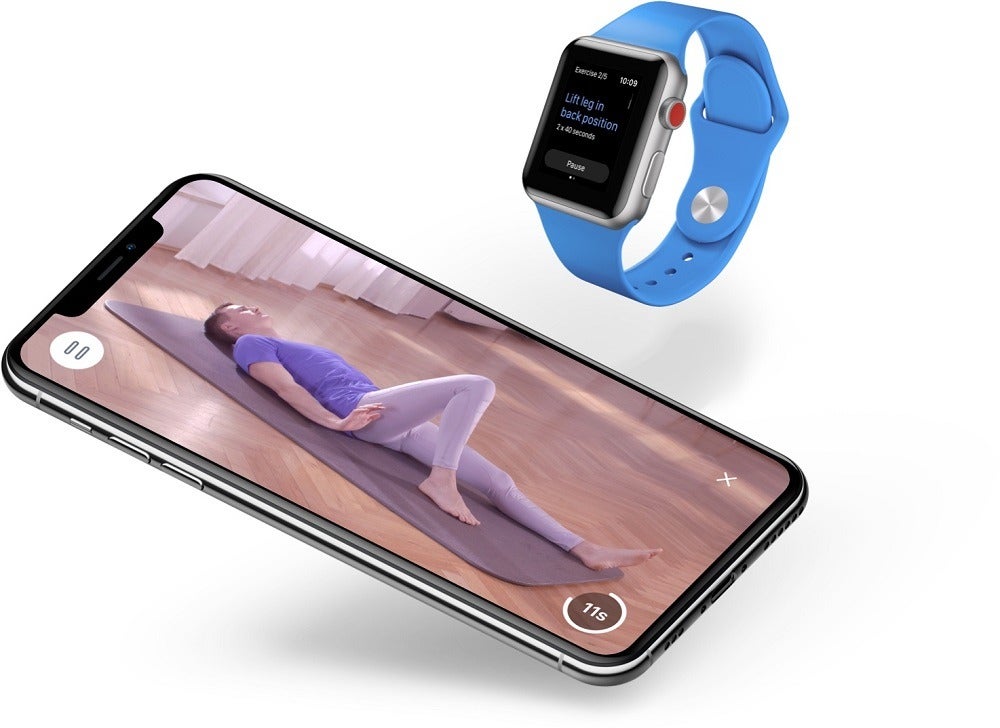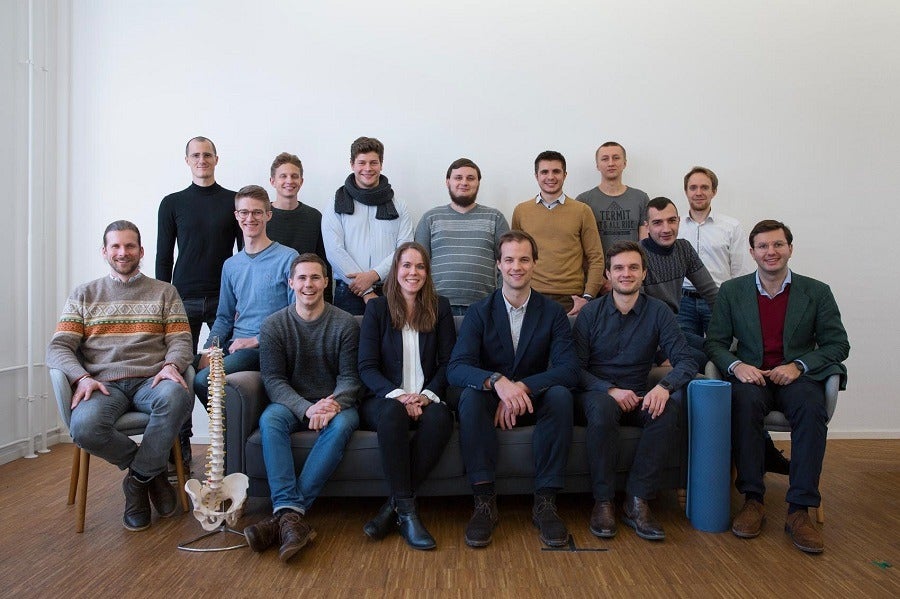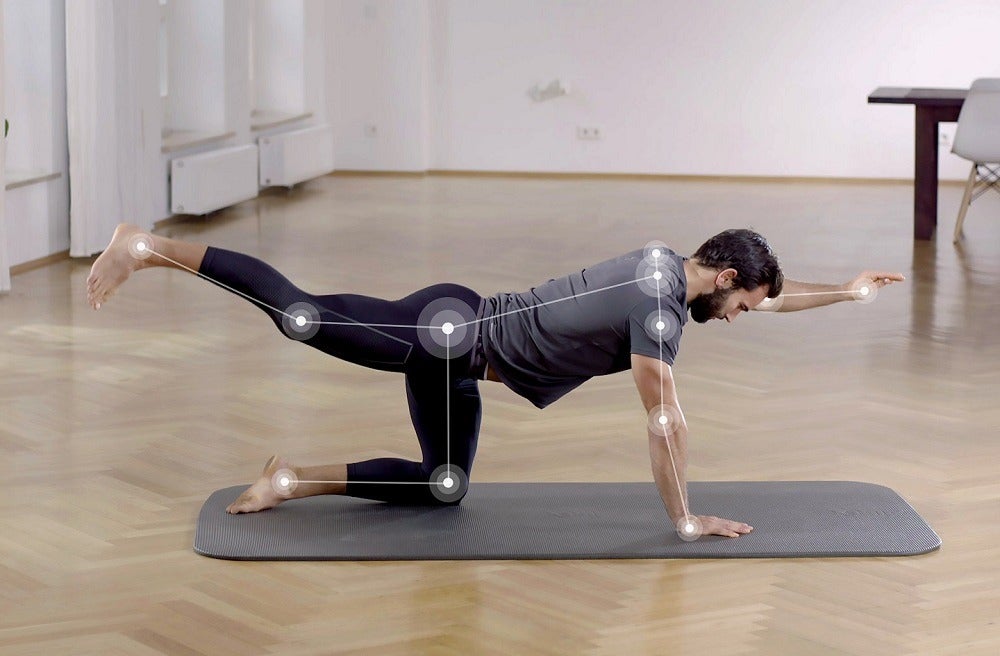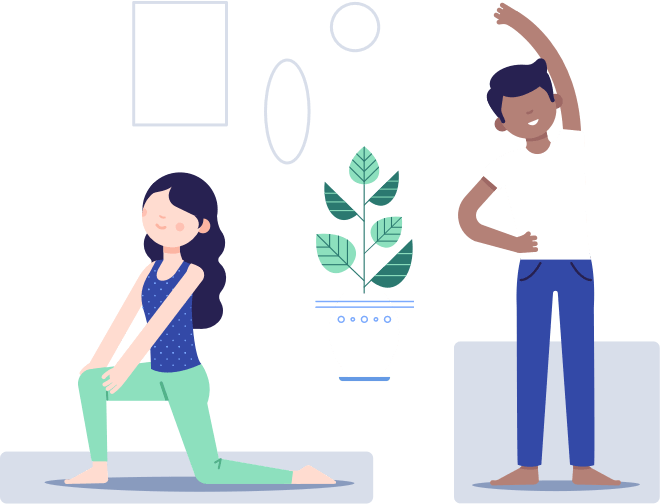
The World Health Organization has named musculoskeletal disorders as the second-largest contributor to disability worldwide, but getting suitable treatment for the likes of chronic back pain is often difficult and expensive to sustain over a long period. Dr Stephan Huber, chief medical officer at Kaia Health tells Anjuman Rahman how his company’s Kaia app can put a willing physiotherapist directly in a sufferer’s pocket.
Securing ongoing treatment for chronic conditions, such as back pain, often means joining a long waiting list or booking an expensive consultation — but now it’s possible to jump the queue and grab one-on-one therapy through an interactive smartphone app.
With the World Health Organization slating musculoskeletal (MSK) disorders as the second-largest contributor to disability worldwide, the availability of remote smartphone based therapy could play a major role in the management of chronic back pain as traditional resources come under increased pressure.
Kaia is one such app offering sufferers the lifeline of a ‘physiotherapist in their pocket’ — along with a viable solution for long-term management of their chronic back pain.
Dr Stephan Huber, chief medical officer at Kaia Health, told NS Medical Devices: “We use technology such as machine learning algorithms to deliver individualised app interventions that motivate patients to take control and self-manage their condition with digital alternatives from their home using devices they already own.
“Multidisciplinary rehabilitation is well-suited to self-management of back pain, as it addresses the different facets of the condition.”

How Kaia Health works as an alternative to pain killers
MSK disorders are injuries or pain in the body’s support structures that allow a person to move. These include the likes of joints, ligaments, muscles, nerves, tendons and structures that support limbs, the neck and back.
Causes of pain and injury vary, but muscle tissue damage can be caused by the wear and tear of daily activities, mostly as a result of overexertion or repetitive motions.
It’s also the most common reason for absenteeism from work, and the second-most common prompt for visits to GPs.
Start-up Kaia Health closed an $8m funding round led by UK-based Optum Ventures this week to further develop the clinical evidence base behind its technology and to develop additional apps to address more conditions.
The Munich-based firm says that when the app’s exercises and psychological support functions are combined, the platform is ‘proven to outperform’ conventional therapy.
Dr Huber explained: “Multidisciplinary rehabilitation is well-suited to self-management of back pain as it addresses the different facets of the condition.
“The Kaia back pain app features an array of digital content which, on average, lasts for 15 minutes per session daily.
“Users receive content with a focus on physiotherapy, education and coping strategies. Patients can use the app at any time in a short-term capacity or even longer.
“This point is crucial as patients often suffer from chronic pain for several years and, thus, a long-term solution is required.”
Ten exercises to relieve back pain at work composed by Kaia Health

Working with physiotherapists, sport scientists and clinical psychologists, Kaia created step-by-step physiotherapy exercises for the lower back and lateral muscles, along with psychological strategies such as mindfulness and muscle relaxation in the app’s video portal.
“The exercises were selected from two perspectives… practicality, being able to perform them at work on a chair or in a standing position, meaning you don’t have to get down on the floor,” said Dr Huber.
“And also holistic exercising — the exercises in sum don’t just have an impact on a single body group like the back, but strengthen and stretch the stabilising muscles around the spine holistically, like the back, neck, arms, shoulders, abdominals and hips.
Health conditions and disorders from chronic MSK pain
Many people who experience chronic MSK pain have exhausted conventional treatment options, leaving them to live with the pain or undergo expensive surgery.
According to research by the British charity Versus Arthritis, almost 17.8m people in the UK live with a MSK condition — almost a third of the total population — with between 60% and 80% expected to experience it during their lifetime.
The charity predicts that by 2030, almost 40% of the working-age population will have a long-term condition.
An Office of National Statistics report reveals work days lost in the UK due to chronic pain costs the economy £12.3bn each year.
Dr Huber explains: “The most important problem may not even be bad posture but not changing posture often enough.
“Sedentary workplace habits are dangerous for pain conditions, but also for overall health issues like hypertension and diabetes.
“They can almost be as dangerous to an individual’s health as smoking or living with Diabetes is — and can also cause chronic pain.
“But other postures that are not frequently changed during work hours can also cause back pain.

Moreover, a combination of high workload, posture, job dissatisfaction or fear over termination can increase the occurrence of back pain at work.
Registered as a Class 1 medical device with the FDA — a category that includes devices with the lowest risk — a trial proved the app’s efficiency after it significantly reduced lower-back pain levels compared with a control group treated with physiotherapy and online education.
Dr Huber added: “In contrast to other comparable programmes, the Kaia back pain app has been scientifically validated in several studies for its safety and efficacy.
“Furthermore, Kaia’s AI-powered Motion Coach technology can correct the user’s posture and give real-time feedback during exercises.
“This is an innovative feature and requires no additional hardware other than the user’s mobile device.
“It is based on machine learning, which we have filed for European patent and is unique to Kaia.”






